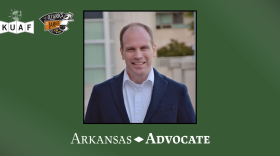Micro-credentials and digital badges are part of the working future. Let's take just a few minutes to consider the working past.
"One of the first things I decided to do was I saw a blanket chest at the Museum of Early Southern Decorative Arts in Winston-Salem, North Carolina," said Jerome Bias, historian, cultural heritage practitioner, and furniture maker. "And I fell in love with this blanket chest and said, I'm going to make that blanket chest. I went home and I started on it, and I quickly discovered that I didn't have the skill sets to make it."
So Jerome Bias began the process of making simpler versions of that chest. Each time he made one, he thought, Okay, that's fair.
“That was successful,” Bias said. “Being a woodworker, you always see all the mistakes you make. Everyone says it's perfect. I'm going, ‘Oh no, it's not.’ And each time I made it, I got a little bit more complicated, a little closer to the original. And so I got to where I was, I got until I made a copy of the original."
Jerome Bias will be in Cane Hill Saturday, as Historic Cane Hill celebrates the opening of their fall exhibition Treasure Chests: 19th-Century Furniture by NWA Craftsmen.
Bias, who lives in North Carolina, doesn't just make furniture for making furniture’s sake. As a graduate student in interior architecture, he saw a large wooden bed frame and learned it was a reproduction of work created by Thomas Day, a free Black cabinetmaker who had lived in North Carolina in the 19th century.
This led him to more discovery. A published artist's statement of Bias’s reads: Hope and love. How do we see our ancestors? Later, in that same artist statement, he writes: As a people forged in the bitter fire of American slavery, what does hope and love look like?
He says, "Through my work, I've been able to have conversations about hope, love, and more.
“Furniture and decorative arts are wonderful things,” Bias said. “They bring us together to have conversations. They bring us together to have food. They bring us together to have interactions with one another. And through our conversations, through our woodworking that we'll be doing this coming weekend, we'll be having conversations about what the slave population’s lives were like. What skills might they have had? Some of the personalities might have were like. What trades did they do? And in doing that, we're going to discover a lot about ourselves and a lot about them and a lot about each other."
Saturday at Cane Hill, Jerome Bias will offer a Woodworking Basics demonstration, allowing observers of all ages a look into the past.
"I'm using many of the same tools my enslaved ancestors would have used,” he said. “It's hand planes and hand saws and chisels and things of that sort — tools that many people are familiar with seeing. Most people haven't used them in a long time. Many of our uncles and grandparents did, but nowadays people don't."
He'll host that demonstration Saturday morning at 10 a.m., then he'll deliver a demonstration intended for adults with questions about techniques and processes at 11 a.m., and then give a talk titled The Persistence of Hope: Seeing Ourselves in the Decorative Art that takes place at 1 p.m.
Each event is at Historic Cane Hill in Washington County on Saturday. Much more information at historiccanehillar.org.
Ozarks at Large transcripts are created on a rush deadline. Copy editors utilize AI tools to review work. KUAF does not publish content created by AI. Please reach out to kuafinfo@uark.edu to report an issue. The authoritative record of KUAF programming is the audio version.








